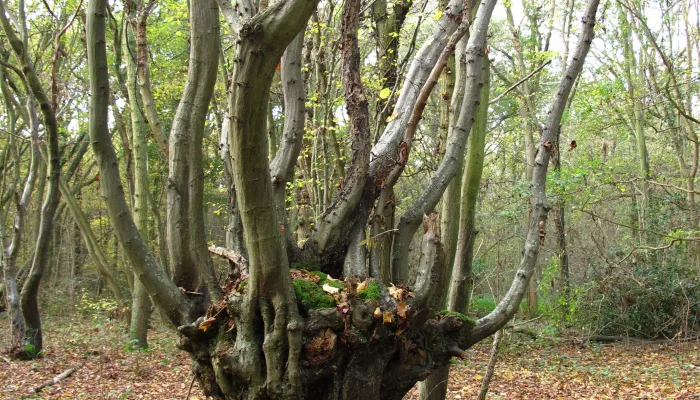Learn about ancient and veteran trees and how to recognise and record them.
About the event
Ancient and veteran trees are a wonderful feature of our landscape and we are only just beginning to understand their contribution to biodiversity. This study day discusses the important characteristics of veteran trees and how to recognise and record them.
The morning session will take place in the classrooom at Tyland Barn.
We will discuss how we acquired such a rich heritage of ancient and veteran trees and why they are so important for wildlife. We will then discuss how to recognise them and the features that make them particularly important.
After lunch we travel to Mote Park to look at individual trees, assess important features and practice the useful and fun task of recording them, using the various recording methods and techniques. We also discuss the management of ancient and veteran trees.
By the end of the day it is expected that you will be able to:
- Decide whether a tree is ancient or not and record the principal features
- Describe the main features of veteran trees and their importance for biodiversity.
- Understand the historical and cultural aspects that have given us this rich heritage of ancient and veteran tree.
- Have an understanding of the principles of conserving such trees for the future.
Led by Neil Coombs, Kent Wildlife Trust Land Management Advisor
Suitable for beginners and improvers.
-
Accessible trails
-
Baby changing facilities
-
Bird hides
-
Cafe/refreshments
-
Disabled parking
-
Toilets
-
Wifi
Car parking at Mote Park: a £2 charge applies for up to 6 hours.
Partially accessible
Tyland Barn is wheelchair accessible. All surface path around wildlife garden.
Mote Park has well surfaced routes suitable for visitors with wheelchairs and has no width restricting features, such as stiles or kissing gates.

